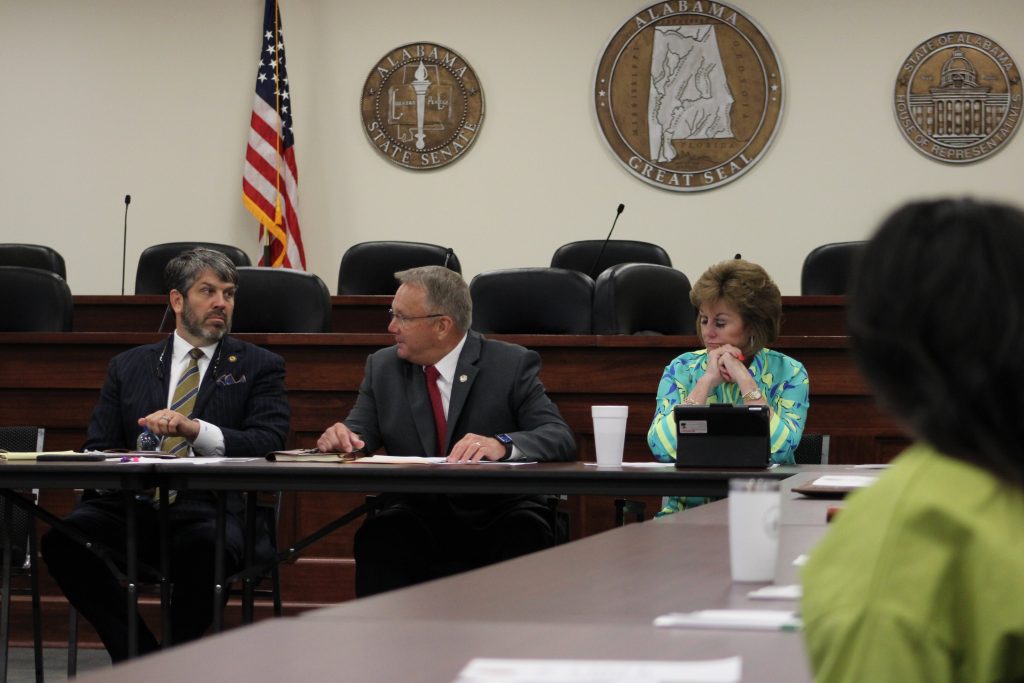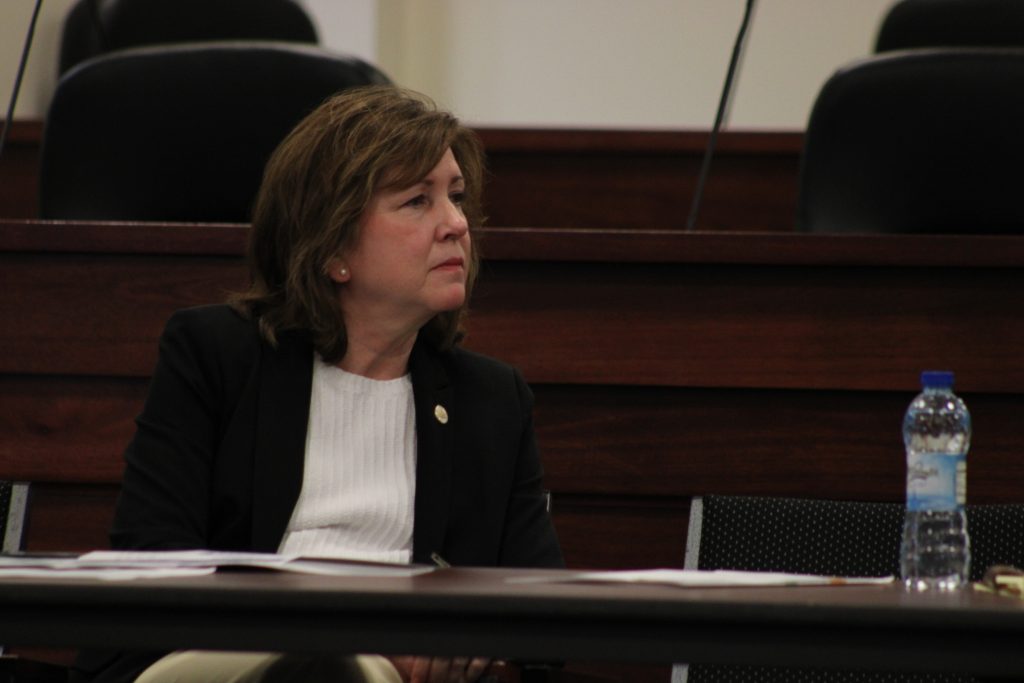
Health experts, law enforcement make plea for mental health funding
MONTGOMERY, Ala. – While Alabama lawmakers have increased funding for mental health initiatives in recent years, state health experts and lawmakers say their resources to address mental illness are still spread too thin.
The state’s gaps in mental health care coverage were front and center recently during a meeting of the Mental Health Ad Hoc Committee, where Mental Health Department Commissioner Kim Boswell went over the latest data of her agency’s efforts to provide resources for those suffering with mental illness.
Boswell shared that the state’s new 988 crisis line, which was launched in 2022, has seen nearly 53,000 contacts from July 2022 to Aug. 2023, 23% of those calls being from veterans. With the increased workload, however, Boswell said her staff was struggling to keep up.
“If you look at the answer rate (of 68%), we are still struggling with capacity at our call centers,” Boswell said.
“We would like for our answer rate to be 90%, that’s the national standard. And then, as additional crisis centers come online, we’ll be adding additional call centers, so obviously funding is a challenge for 988 call centers.”
Members of the Mental Health Ad Hoc Committee at the Sept. 28 meeting.
Perhaps even more vital to addressing mental health emergencies, Boswell suggested, were the agency’s crisis centers, which offer services for those having a mental health or substance abuse crisis 24 hours a day, 365 days a year.
The state currently has just four operational crisis centers, though a fifth center is scheduled to open in Tuscaloosa on Oct. 17, and a sixth in Dothan in January 2024.
From January 2022 to August 2023, more than 5,400 evaluations have been conducted between the four crisis centers, 1,060 of which were done on individuals with suicidal tendencies.
“When we say we are saving lives, that’s what we really mean,” Boswell said. “Folks showed up and got services that they needed instead of a much worse outcome.”
Much like the 988 crisis line, however, demand at the crisis centers is growing exponentially, far outpacing the Mental Health Department’s capacity to treat patients.
“The volume is picking up very rapidly,” Boswell said. “In the last six months, we’ve served almost half of what we served in 18 months, so it’s sort of doubling at this point. Part of it is just absolutely the need for those services.”
 Alabama Department of Mental Health Commissioner Kim Boswell.
Alabama Department of Mental Health Commissioner Kim Boswell.
The Mental Health Department also operates mobile crisis teams, which currently cover 19 of the state’s 67 counties through a mix of federal and state funding. The Stepping Up Alabama initiative is also managed by the Mental Health Department, and places case managers in jails to help identify inmates with mental health issues.
As far as further funding the Mental Health Department’s mental health care services, an attempt was made this past legislative session to attach a $.98 per-month surcharge on phone lines, but ultimately failed to become law. The bill would have funded the department to the tune of $69 million per year.
Boswell said that were a $.98 surcharge bill successful during the 2024 legislative session, it would generate enough money to adequately expand its 988 crisis line staff, add 30 mobile crisis teams to cover all 67 counties, and construct a new crisis diversion center.
Rep. Rex Reynolds, R-Hazel Green, the committee’s chair, was the lead sponsor on House Bill 389, the bill that would have generated $69 million for the Mental Health Department through phone line surcharges. While he didn’t shoot down the possibility of reintroducing the bill next session, he did suggest that gaming legalization – which has long been seen as a potentially powerful new revenue source for the state – could play a role in mental health funding.
“Certainly gaming’s got to be a part of the conversation,” Reynolds said.
“I’ve been very open and (have) met with leadership, and certainly, if gaming does pass in the 2024 (legislative) session, then I have asked those that are working on legislation that they keep mental health in mind. Maybe there’s been some numbers thrown out there, maybe as much as 25%.”
Rep. Russell Bedsole, R-Alabaster, a member of the committee and administrator of the Shelby County Jail, mirrored Boswell’s concerns about under-funding mental health initiatives, and said that law enforcement is often overwhelmed as a result.
“The frustration for us comes at the point in time that we try to get them help and nobody seems to want to help them,” Bedsole said.
“Our local out-patient facilities simply don’t want to treat them, and send them back to the jail with the wording that they can be treated inside the jail. I can tell you, we don’t offer treatment.”
 Rep. Russell Bedsole.
Rep. Russell Bedsole.
Committee member Heath Jackson, Escambia County Sheriff, concurred with Bedsole in that law enforcement is often given the burden of treating those with mental health needs, but added that increasing the amount of bed space for mental health patients was crucial to fixing the problem.
“We’re the ones (who) meet with these people and see that they’re in a crisis and they need help; guess what, they don’t get it,” Jackson said.
“Let’s say they call the 988 number, the person on the line decides that they need more than they can provide them over a telehealth counsel. Guess what, they tell us to take them home and drop them off because there’s no bed space available. It comes down to you’ve got to have bed space; it’s like buying a train but you don’t have any tracks to put it on.”
Beyond those suffering with mental illness not getting the treatment they need, Jackson went further in suggesting that the lack of mental health resources was a serious safety issue.
“Just last month, we got a call (about) a guy who’s fixing to commit suicide, he’s locked in the bathroom with a rifle and it’s to his forehead,” Jackson said.
“I go over there and I talk to this guy for 35 minutes, and he’s just out of his mind. I convince him to come out and talk with me, get him in custody, take him to mental health, and ten minutes later they said ‘he does need to go, but we don’t have anywhere to put him, carry him home and we’ll try to find you a bed.’ To me that’s irresponsible.”
Alabama is currently ranked only above Texas as having the worst access to mental health resources in the nation, with just one mental health care provider for every 920 residents, well below the national rate of 350-to-1.
“I think there has got to be money put in the bed spaces because I’d say 65% of everything we deal with are people that need to be seen for longer-term care than just a 25-minute conversation,” Jackson said.
“I’ve watched four people commit suicide in 25 years; I’m not going to watch a fifth one.”







